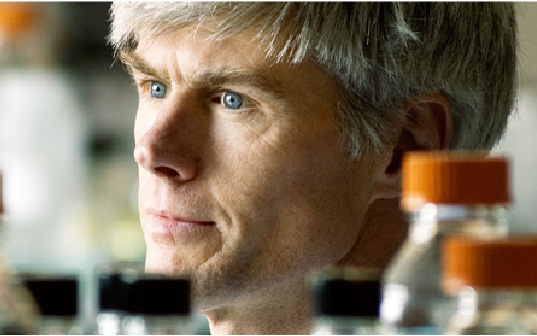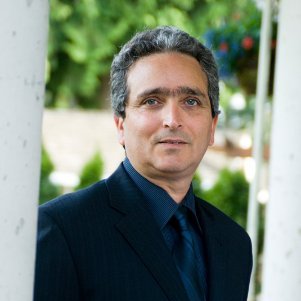
Dr. Lindsay Eltis
Researcher, Tuberculosis
Dr. Linday Eltis obtained his PhD in Biochemistry in 1989 studying interactions between metalloproteins. His interest in bacterial catabolic enzymes and pathways began during his postdoctoral studies in Germany, when he studied enzymes involved in the degradation of polychlorinated biphenyls (PCBs). His primary research interest is bacterial enzymes and pathways responsible for the degradation of aromatic compounds and steroids. His most significant contributions have changed the way we think about how important classes of enzymes work and how certain pathogens survive in their hosts. Dr. Eltis is a Professor of Microbiology and Immunology and founding Director of the Centre for Tuberculosis Research at University of British Columbia, as well as Principle Investigator at the Eltis Lab.
By looking at the mycobacteria that causes tuberculosis (TB), Dr. Lindsay Eltis's research aims to develop the correct cocktail of medication that will essentiall starve the TB and allow the body's immune sustem to flush it out.
What is the focus of your research?
I began my career in soil bacteria research, looking at how microbes in dirt degrade or break down pollutants such as polychlorinated biphenyls (PCBs). I studied a process called biocatalysis, where enzymes activate or accelerate chemical reactions. TB scientists had earlier identified genes that helped Mycobacterium tuberculosis—the bacterial agent that causes TB—to survive, but no one knew exactly how the process worked. TB bacilli are unusual in that they can survive in macrophages—large immune cells that normally devour invading pathogens. Along with Microbiology & Immunology colleague Dr. Bill Mohn, we examined similarities in the function of enzymes involved in PCB degradation and enzymes involved in TB.
What is mycobacteria?
Mycobacteria is a bacteria that causes tuberculosis (TB). It typically attacks the lungs and if not treated properly is fatal. Mycobacteria eats "good" cholesterol and specific enzymes must be present in order to digest it. We're investigating which cocktail of medication could inhibit or block these enzymes, essentially starving the TB mycobacteria until the body's own immune system could flush it out.
And what did your research uncover?
We found a suite of genes that contain the information required to make enzymes that degrade the cholesterol found in macrophage cell membranes. The bacilli use the degraded cholesterol for fuel to survive. In most infections, the macrophage is the enemy. In TB it’s dinner. The discovery offers the potential for an entirely new class of therapeutics—answering a critical need for new treatments to combat emerging drug resistant strains. Now that scientists know cholesterol is essential for TB bacilli’s survival, we can work to inhibit the enzymes that are responsible for cholesterol degradation. In effect, it would be similar to taking cholesterol off the menu and starving the infection to death. Basically, what we uncovered helps explain how TB survives.

